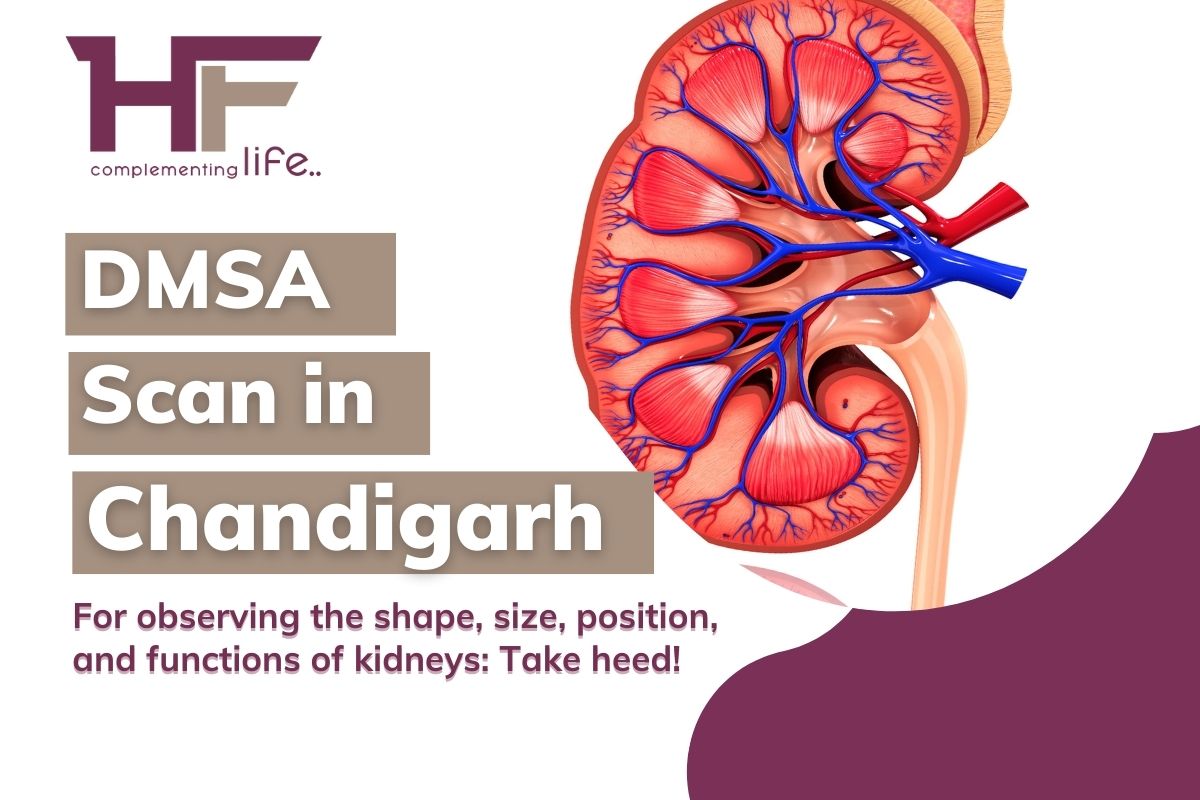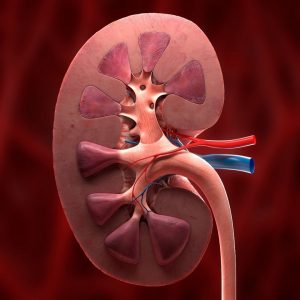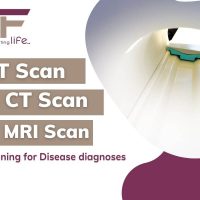DMSA Scan in Chandigarh for observing the shape, size, position, and functions of your kidneys: Take heed!
Kidneys are responsible for discharging all extra fluid and waste from your body. Simultaneously, monitoring and controlling the water and acid balance in your body and activating Vitamin D for enriching bone health.
What if abnormalities pop up in between? What if the kidney bulges out? What if fluid-filled sacs start residing there?
Alas! You are not aware of it. Certainly, it is because the kidneys are not visible to open eyes.
One solution for your child’s all kidney problems! DMSA Scan, thy stand tall!
It is nothing but a short-lived radioisotope, that helps your doctor examine and evaluate the kidney condition accurately. Full name, Dimercapto Succinic Acid!
I know, medical science makes it tough for us to understand these technical terms and their pursuit. But, not so tough to recapitulate in conversational forms. And that is exactly why we are here – Giving some heed to the medical test, precisely the diagnostic method brought about by medical science to observe your kidneys. This article shall encompass the all about(s) and take you through the journey of a DMSA Scan in Chandigarh.
Are you ready? Then, sit back and spare some time to read with me.
Below lay some messages for those who have to up-take a DMSA Scan in Chandigarh –
- You must be wondering what signs will tell you that an abnormality may have appeared in your child’s kidneys, the signs that claim the call to action. You dial the number of your doctor and detail the health issues that came to your notice!
- Once your doctor is in the role, she will predict the plausible cause behind such symptoms based on your details and her medical knowledge, of course! However, predictions do not suffice for health conditions. She needs confirmation, and that is when she will ask you to pursue a DMSA Scan.
Additional Note: She may otherwise also ask for a DTPA scan, but that is a different story altogether. For your basic understanding, the DTPA scan is dynamic as opposed to the static DMSA scan. In other words, the DTPA technique is twin-tasking, for both diagnosis and treatment, whereas the DMSA scan reflects a plain diagnostic process. So, when a DMSA scan is prescribed, it stands only to bring out the hidden structural abnormality and the functional ones.
Now, you must be thinking, why did your doctor prescribe a DMSA scan instead of DTPA when the latter is so dynamic. Relax! Your doctor knows the perks of this test. It’s time for you to also learn about the benefits of a DMSA scan!
- Undoubtedly, the benefits of a diagnostic test cannot appear in the picture without an expert team of caregivers. Who are they?
- Whoever they are, they will, certainly, follow a strict outline of the procedure. And you have no option other than to abide by it. Learn about the procedure from the preparation to post-diagnosis care minutely so that no course of setback is left upon your shoulder as a parent.
- However, probable side effects are present in every diagnostic method. It is because the development of medical science is not able to escape the factors of life threats permanently but only enhance the survival rate. Therefore, it is always better to know the risk factors and probable complications before signing for the test. After all, it is about your child’s future.
- Once you sign in, you won’t be able to alter the course of action. That is why we come into action straightway to show what qualifies as a better diagnostic provision in Chandigarh and what is not.
- In fact, we can also help you fetch an efficient DMSA diagnostic service in Chandigarh and beyond alongside all the necessary care required in the meantime. Do you not want to know who we are? If you want to know who we are and in what ways exactly we can offer assistance, please do not hesitate to wait till the end!
CContents
#1 Signs that seek your doctor to prescribe a DMSA Scan for your child
Remember to call your doctor as soon as you notice any of the following.
- Can you see your child frequently vomiting or feeling so for quite a long time? It is a sign!
- Is there unwanted tiredness all the time, fatigue that doesn’t let him play or dance around despite avoiding heavy meals or exhausting tasks? Alerts are on the way!
- Did his rate of urination drastically increase, mostly at night? Or, did it decrease even after giving him plenty of water to drink daily? A red flag waves from high above!
- Are you witnessing a sudden or continuous loss of appetite, and your child doesn’t crave snacks like before anymore? Well, an internal health issue is waiting to show up!
- Is your child suffering from acute chest pain or abdomen pain for quite a few days? It isn’t something you should neglect at all.
- Are his ankles swollen or does his face look puffy, especially when he wakes up? On the very same note, is his skin persistently itchy? That’s a problematic symptom, I tell you!
- Is your child a victim of regular muscle cramps at night? At the same time, did he speak about a metallic taste in the mouth that bothers him all the time? It is unlikely to go away on its own
- He needs medical help.
- Does your child’s blood pressure go high now and then? Or, did he feel a choking sensation and witness shortness of breath frequently? Immediate medical care is the call!
And for all of these signs, a DMSA Scan can confirm the cause precisely.
#2. What are the reasons for your doctor to prescribe a DMSA Scan for your child?
After assessing your symptoms, the doctor can understand what thy reason is. However, there are a bunch of issues that show similar symptoms. And only a diagnosis like DMSA shall help her know which one is it exactly. Corollary, laying down the track of treatment. The list of issues is as follows.
- The doctor may be predicting that your child is suffering from severe trauma. Maybe, something is bothering him for a while, and you don’t know about it. Or, maybe, the trauma is so deep that it paved for a Bruised Kidney, where the lower back gets vulnerable. Perhaps, your doctor doesn’t want it to turn into complicated conditions like kidney bleeding or anemia.
- Young age is prone to chronic kidney diseases (CKD). Here, high blood pressure or hypertension acts as a supplement to the problem. Your doctor may be predicting an issue in the urinary tract that led so and wants to know if it is CKD that threatens your child’s health.
- Your doctor may also predict conditions like renal ectopia. In this case, your child’s kidney is positioned abnormally or has migrated so over time. Herein, your doctor also needs to know what is the unusual anomaly of your child’s kidney. Did it shift below, or above, or the opposite side? This congenital problem cannot be confirmed without a DMSA Scan.
- Another critical kidney problem that your doctor may think your child bears is a horseshoe kidney. In this particular health condition, the kidneys fuse from the bottom, typically in the shape of U or just like a horseshoe. The plausible rate of such a condition is, however, 0.25% of the population only.
- The next reason for your doctor to prescribe a DMSA Scan for your child is postrenal acute kidney failure, where an obstruction in the urinary tract right below the kidneys appears in the picture. It is not just a structural issue because the barrier refrains body waste and fluid excesses to pass through, in turn clubbing up in the kidneys itself.
- Otherwise, it may also be a prerenal acute kidney injury that your doctor predicts to be underlying behind the aforementioned symptoms. It happens when conditions like pancreatitis, severe dehydration, or severe infections due to abdominal surgery have taken the job of reducing blood flow to your child’s kidney.
- Besides, tubular necrosis can be a reason for your doctor to prescribe a DMSA Scan for your child. In this condition, the tubule cells or tiny ducts in the kidneys that filter blood while it passes through may have been damaged. Thereupon, not allowing even oxygen-rich blood to travel to the kidneys. A highly morbid condition that seeks immediate medical care!
- On the other ground, your doctor must be predicting that pyelonephritis has taken the stage. It means either of the kidneys of your child or maybe both are infected by gram-negative bacteria. As a result, the kidneys swelled up. Now, it can even lead to permanent damage if not eliminated by medical intervention.
- Sometimes, while your baby grow inside your womb, one kidney may not develop correctly. These malformed kidneys enlist numerous irregular cysts resembling a bunch of grapes. Such a condition makes that particular kidney of your baby completely dysfunctional, and the other kidney compensates for the functioning as it is healthy but growing larger than the normal size. It is rare, but, your doctor can’t take a risk. That is why he wants to check the images of your kidneys accurately and see if it is this condition or something else.
- Not of panic so much as it might be some scars in your child’s kidneys that the doctor is looking forward to curing.
Unless an accurate result comes, the disease cannot be confirmed. Don’t worry, DMSA scan holds the credit of such a benefit.
#3 What are the benefits of DMSA Scan?
Alongside accuracy in results, the perks of DMSA Scan are given down the line in this article.
- It is a non-invasive test, and therefore, painless. Only while inserting the IV needle, slight discomfort may come up.
- In contrary to other nuclear tests of medical science, DMSA Scan stands appropriate for children. Thus, this diagnostic method holds applications for all ages, from infancy to old age.
- Through this test, your doctor can acquire multiple pictures of the kidneys inside your child’s body, from different angles and close-ups.
- In a DMSA scan, a small amount of radioactive material is used. And it does not stay radioactive for long. In other words, the materials are short-lived. Hence, your child is safer here than other procedures.
- Since the test is so simple, no sedation medicines are given. Even if it is, in some cases, when your child cannot stay still during the process, a pediatric nurse shall stay beside him all the time.
- Apart from diagnosing the kidneys, a DMSA scan has other pursuits as well. It can detail the internal imaging of your urinary bladder, ureter, urethra, uterus. Yes, it stands for the diagnosis of all that comprise the urinary system!
- DMSA scan, as a non-invasive process, does not take much time, and returning to the normal course of life just after the test is possible.
- CT scans, X-rays, and ultrasound can certainly showcase the shape size, and position of the kidneys. But not their functions. Functional identification is something you can get through a DMSA scan, unlike the formers!
- On top of these, another notable facet of this diagnostic test is the usage to monitor the efficacy of any of the kidney treatments. I mean, after your child is already treated and cured of his health disorders, another round of DMSA can help the doctor understand whether the treatment works or not, and how far did the treatment work. Mostly, in the case of a kidney transplant!
However, for acquiring all of these benefits, a perfect step-by-step procedure and guidance stand as requisite. That’s when an expert team of radiology comes into assistance.
#4 Who are the caregivers for a DMSA Scan?
Even though the diagnostic process is simple, caregivers work in a team to render proper results.
- The team of caregivers for a DMSA scan primarily involves a radiologist who supervises the procedure and interprets the condition from the imaging. According to his interpretations, the test reports will be done.
- The second person to actively participate and contribute in the process of caregiving for a DMSA scan is the radiographer or technician who is trained in operating the technological systems in the radiology lab. The one to conduct the test under the supervision of the radiologist.
- Then, there is a pediatric nurse who will take care of your baby throughout the process for ensuring that he is fine. And continuously help him in following the instructions of the radiologist to extract accurate results.
- Additionally, for DMSA scans of children, a pediatric radiologist also stays in the process of caregiving accompanying the main radiologist in interpreting the results.
- Not to miss, other staff in the diagnostic centers also contributes to the process of caregiving like documentation, providing the attires, and so forth.
Without coordination between all of them, the procedure stands fragmentary and imperfect.
#5 What are the steps of a DMSA Scan procedure from preparation to post-diagnosis care?
Let’s begin with the preparation process!
- Nothing special stands requisite, but, of course, you need to follow the instructions given by your doctor before the test. The most difficult part of preparing your child for the DMSA scan is to provide him with some basic explanation as to why he needs this and what will happen. Furthermore, assure him that everything is going to be okay and you shall always stick by.
- Then, make a file including all necessary documents like the doctor’s prescription, previous test reports, if any, a list of medications he is consuming, referral letters, etc. You have to carry this along while going for the DMSA test.
- Not a compulsion, but you can carry along some toys or books to make him comfortable and devoid of fear during the test. However, make sure not to bring or give him any metallic object as that might interior the diagnosis and create fallacies in the test results.
- Make sure to consult with your doctor about his medications before opting for the test. Also, regarding any allergies or other medical history that your child has. That’s is how your doctor will be able to instruct you regarding the intake of medications.
Usually, doctors recommend avoiding medicines like angiotensin receptor blockers for those already having a kidney or cardiovascular issue or other anti-inflammatory drugs that you used for reducing the symptoms like cramps, pain, or fever. However, your child can eat as per his normal diet.
- Try to give him some loose clothes to wear for the convenience of both the procedure and your child since it may take a long time.
- Your doctor may ask to give him plenty of water to drink before attending the test. Abide by it seriously!
Note please – if the DMSA is for you or someone adult female in the family, speak to the doctor about pregnancy and breastfeeding periods beforehand. It is a radiology test, and radioactive exposure can lead to complications.
Once you reach the diagnostic center, a series of steps follow. Let’s unfold them one by one!
- You have to primarily sign up for the test and submit the necessary documents that you carried all along to the reception table.
- A clinical intake coordinator will come into assistance, checking your child’s body temperature, pulse rate, blood pressure, and so on.
- Then, your child will be taken to the clinical hall for the injection. Yes, the pediatric radiologist and the pediatric nurse shall arrive to give a small amount of radioisotope, namely, Technetium-99m, through an IV needle into your child’s vein.
- Next comes a waiting period of about three to four hours. Hence, you, along with your child, will be moved to another room in the meantime. For deriving accurate imaging, this gap aid the kidneys in absorbing the radiopharmaceutical.
- After the hourly clock ticks its right moment, you will have to bring your child to the examination hall. Inside the hall, you may or may not be allowed to step in, depending upon the provision of the diagnostic center. However, there is nothing to worry about as the pediatric nurse, and sometimes even a play specialist shall accompany your child and take care of him throughout the test.
- Inside the lab, your child has to lie down on the examination table where two large cameras locate, one above and one below. These cameras can move and stay still depending upon their remote control.
- The radiographer at the position, the radiologists, and the nurse as well! All waiting to initiate the machines in imaging your child’s kidney!
- During the scanning process, your child has to stay still and not go restless, as that is their habit during childhood. Sometimes, toys, cartoons, books work in favor. But, sometimes, when all of such methods fail, mild sedation is given though mostly, children do stay still and even go off to sleep during the scan.
- The radiologists shall move to the computer room attached to the examination hall and can listen, speak and see your child from the other side of the glass window standing in between. They shall see the image and accordingly ask the radiographer to move or pause the machine so as to extract a precise report from all sides.
That’s all! Nearly fifteen to twenty minutes for all of these steps, and the radiologist has your child’s kidney images along with the confirmed signs of its abnormality! It will take a few hours for him to interpret the image. Meanwhile, there is some post-diagnosis care that rests on your shoulder. So, hurry up and see what they are!
-
- Now you and your child are free to go back home and do regular activities. But, keep following your doctor’s recommendations.
- Remember that the radioisotope is residing in your child’s body, and that needs to discharge. Give your child plenty of water to drink so that the dye flushes out either through urine or by sweat. A minimum of eight glasses of water is thy suggestive!
- Be sure your child urinates on that day and thereupon washes hands with soap and dry them in a clean towel properly. Give the towel for a wash after its use.
Disclaimer! Radioactive material is harmful to human bodies and holds a variety of setbacks, so preventive measures are always necessary.
-
- If your child is too small and uses nappies, change them frequently and throw them away at that time itself. On the other note, if you are pregnant, stay away from your child’s urine or feces for at least 24 hours.
- Give your child healthy food to eat and wait for reports to reach you. Yet again, stay alert! See if any other abnormal signs are appearing, like fever or diarrhea. As soon as you locate any, call up your doctor.
As you already know, amidst so many possibilities of medical science, side effects, even though unlikely, have a chance to appear. Why not glance through them for better precautions?
#6 What are the side effects or risk factors of a DMSA Scan?
Indeed, the chance of further complication or risk is minimal! Yet, for your knowledge, they are given below.
Effects of DMSA Scan
1. Sometimes, basic allergic reactions to the contrast dye may occur like redness on the skin, rashes, dizziness, taste impairment, sore throat, cough, or mild headache. But, they are likely to go away on their own within two to three days. However, keep your doctor informed!
The Less severe expression of DMSA side effects also exists. Such as,
- Stomach discomfort or irritation.
- Drowsiness
- Backache
- Flu-like symptoms
- Loose stools
- Feeling of vomiting
Since the immunity of your child is what serves as the basis, these conditions are not at all risky.
More serious complications that may hit back hard like
- Infections around the injected area
- High cholesterol
- Deteriorating level of white blood cells
- The drastic increase of platelet count or just the opposite
- Hypersensitive reaction to the contrast dye
The severe threats may approach only when the diagnostic process is improper, when the dosage of radiopharmaceutical goes high, or when the injection is given in the wrong way. Therefore, you have to choose the right team of caregivers!
#7 What qualifies as an efficient radiology lab?
For selecting the best caregivers for your child’s diagnosis, here we present some expert advice. These are some benchmarks, indicating the diagnostic center is the suitable and appropriate one!
-
- A radiology lab that is NABL accredited and ISO certified.
- The diagnostic center, keeps state-of-the-art equipment and uses the latest techniques and methods.
- The one, not having any negative feedback from the customers. In this regard, you have to do detailed research online and ask for the same from your associates.
- A center that is quick to respond and does not make you wait for long. Waiting lists for a diagnosis is volatile because the patient’s health may fall back even in a few hours.
- And, of course, a radiology lab where the most experienced radiologist and radiographers work.
Are you puzzled and do not know how to find a lab that pertains to all of these qualifications? Relax! We are always here to help.
#8 About us – Who we are and how we can help?
If you are still reading with me, then we might come of some help at the end of filling your knowledge gaps.
Health Finder, we are!
And as the name suggests, we are an online marketplace for the healthcare and wellness industry, allocating services in Chandigarh and other areas of Tricity. We help patients connect with the best healthcare service providers in the region.
We partner with NABL and ISO-certified labs in the city and can help you fetch a DMSA scan from them. The labs, hospitals, clinics, or doctors we list are not a part of random listing but partnered with after rigorous inspection of all the benchmarks that the article already shows and many more.
Besides, we have some other salient provisions.
- First is thy pickup and drop facility while booking the test. And even otherwise.
- Second be the online scheduling of DMSA and other diagnostic tests in three simple steps. In this context, you can get to know the quotations previously. And book the tests flexibly under your schedule.
- Third is the cashless payment model, which you can use after getting your reports.
- Facility of getting online tests reports via email or WhatsApp. A Criteria, crucial in the COVID days!
- And lastly, tests within your budget that too with a lot of discounts. Sometimes, even at 50% off.
For further queries, drop a message on the web at https://healthfinder.in
If you wish to make a call, dial 7740033771.
When you want to mail, the official ID is [email protected]











Comments